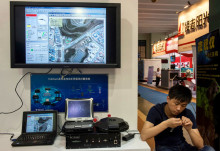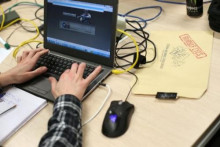Supporters rally to gain leniency for Anonymous hacker, Jeremy Hammond
Supporters of Anonymous hacker and self-styled online anarchist, Jeremy Hammond, are circulating this online petition aimed at cajoling authorities into granting the 28-year-old leniency. Hammond pled guilty this morning to participating in the December 2011 hacking of online publication Stratfor.













































































